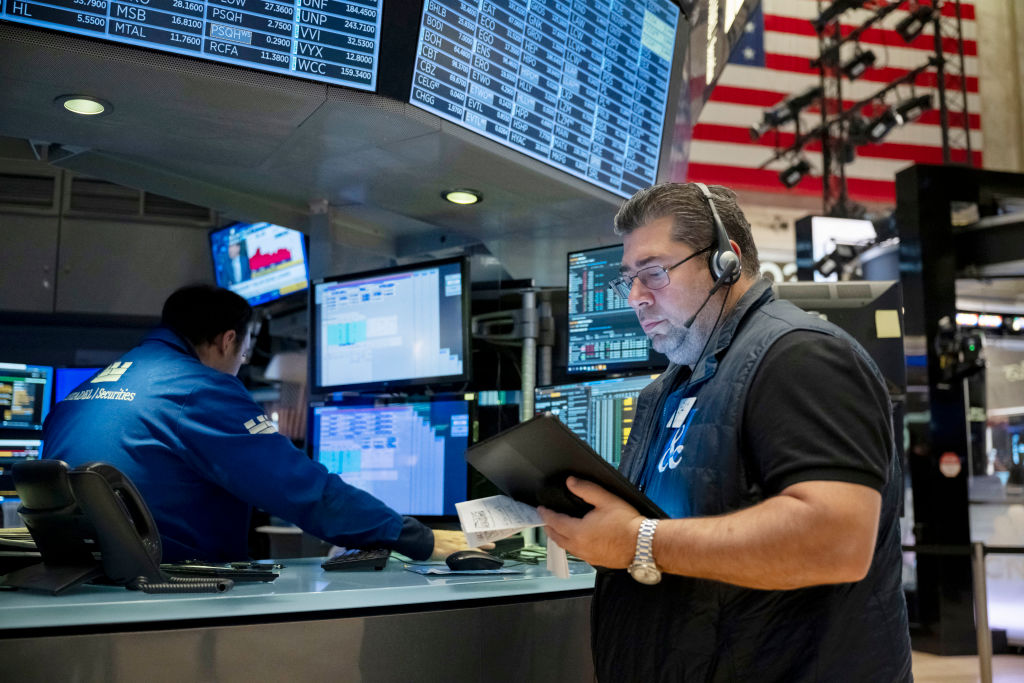Since October 7, Anti-Israel Activism Has Failed Where It Matters Most
As we approach 365 days since the horrific attacks of October 7, 2023, it’s abundantly clear that America has an anti-Israel extremism problem. Points of evidence range from the comparatively mundane, such as Pennsylvania Senator John Fetterman’s chief of staff breaking longstanding protocol to criticize her boss’ pro-Israel stance on record to reporters at the ...

As we approach 365 days since the horrific attacks of October 7, 2023, it’s abundantly clear that America has an anti-Israel extremism problem. Points of evidence range from the comparatively mundane, such as Pennsylvania Senator John Fetterman’s chief of staff breaking longstanding protocol to criticize her boss’ pro-Israel stance on record to reporters at the Free Press, to the unquestionably extreme, such as the case of a Jewish man violently assaulted outside a New York synagogue in August, whose attacker yelled “Free Palestine” before asking the victim if he wanted to die and stabbing him in the torso. The August stabbing was yet another incident in the spike of antisemitic violence we’ve seen in the wake of the deadliest attack on the Jewish people since the Holocaust.
Outside of the rise in physical violence, anti-Israel sentiment has propped up in a multitude of other places, from the mouths of student protests at universities like Columbia and Yale to the mouths of American lawmakers like Rashida Tlaib (D-MI). Yet, outside the academic and political realms, the push to attack Israel has also made its way into an area that’s increasingly become a focus for political activists: the boardrooms of America’s biggest companies.
Every year, thousands of publicly-traded companies hold their annual meetings, where shareholders vote their corporate shares on issues pertaining to the company’s governance and operations, often presented via proposals from shareholder groups themselves. For many years, these shareholder proposals have focused on social issues, in an arena more or less completely dominated by the progressive Left and its obsession with prioritizing environmental, social, and governance (ESG) issues that place partisan politics over good governance and fiduciary duty. As an analyst at America’s largest pro-shareholder proxy advisory firm, I’ve read thousands of shareholder proposals — from activists calling Starbucks racist for upcharging for oat milk (yes, you read that correctly) to others urging Walmart to confront its systemic racism problem (it’s so apparent that you can’t see it at all).
But those are comparatively small issues — shareholders wanting to waste Walmart’s money on their pet causes is one thing. The tone changes, however, when it’s shareholders lobbying weapons companies to disarm the state of Israel. And, this shareholder season, that’s exactly what happened. Activists went to brands like Lockheed Martin and accused them of playing a role in ‘war crimes’ for selling aircraft and weapons to the Israeli government — a partnership that’s existed for decades. They took similar sentiments to Raytheon and Amazon, claiming that the company propped up “apartheid” by doing business with the Jewish state.
It’s worth noting that, while some proposals were filed before the events of October 7, many, including the call for Amazon Web Services to divest from Israel, were filed after, and expressly used the events of and response to October 7 to bolster their case for disarmament. These activist shareholders took their linguistic and rhetorical cues straight from the anti-Israel propaganda playbook, using the lofty language of universal commitment to human rights as they called for the largest companies in the world to not only leave innocent Israeli citizens defenseless against their enemies, but ditch Israeli vendors for the crime of being vendors in Israel.
Am I Racist? Is In Theaters NOW — Get Your Tickets Here!
If you or anyone you know is a member of the Episcopal Church, you should know that the Church sponsored such a proposal on TripAdvisor’s corporate ballot, urging the company to stop doing business with Israeli tourism vendors to avoid complicity in “human rights harms.” Such corporate activism is a picture-perfect example not only of how bought-in ESG activists are to progressive ideology, but how many mainstream American institutions have come along for the ride. Where’s the good news?
Whether the violence of October 7 exposed the inhumane calculus of one-sided corporate divestment for what it is, or whether shareholders simply weren’t willing to meekly comply with activist demands of “drop Israeli clients and lose out on financial returns because we say so,” the anti-Israel movement lost big at the boardroom. At Amazon, anti-Israel proposals last year pulled more than 33% of shareholder support. This year, thanks in part to conservative journalists and shareholder advocates in this space exposing the activist rot, such proposals pulled less than 20%.
As skepticism of ESG grows, its association with radical ideologues like the ones seeking to disarm the Jewish state has only hurt it in the eyes of ordinary American shareholders who invest in companies for financial return, not to play politics. For the anti-Israel activists who see ESG as a way to channel their destructive corporate philosophy into geopolitical difference-making, it’s back to the drawing board. Let’s hope they stay there for a very, very long time.
* * *
Isaac Willour is a corporate analyst at Bowyer Research, America’s largest shareholder-first proxy advisory firm, and an award-winning journalist whose work has appeared in USA Today, the Wall Street Journal, and the New York Times. He can be found on X @IsaacWillour.
The views expressed in this piece are those of the author and do not necessarily represent those of the Daily Wire.
Originally Published at Daily Wire, World Net Daily, or The Blaze
What's Your Reaction?
































































































